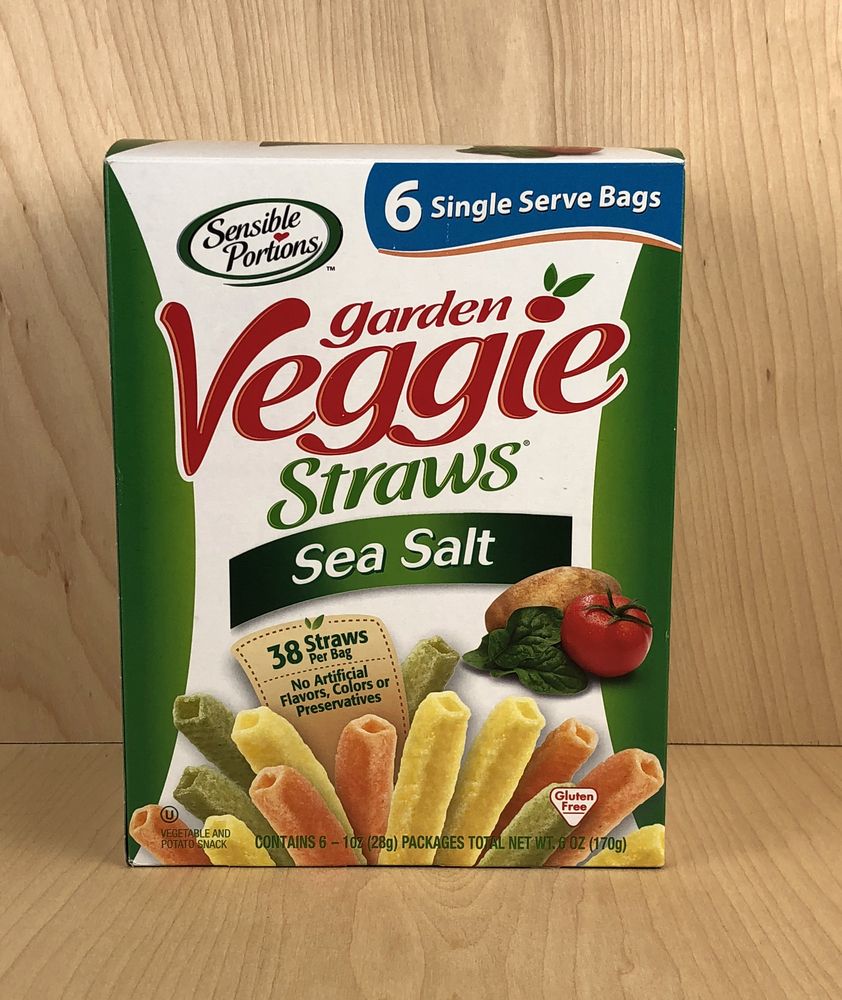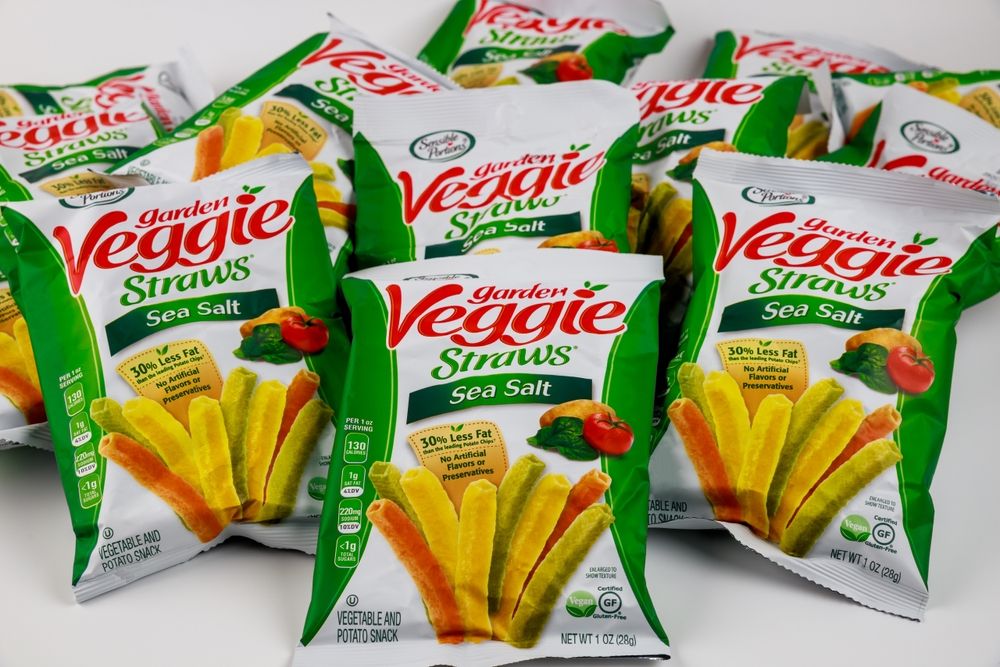
Veggie Straws have gained popularity as a go-to snack for those seeking a healthier alternative to traditional potato chips. Marketed as a nutritious choice, these colorful, crunchy straws, made from potato starch and various vegetable powders, appear to be the perfect solution for guilt-free snacking. But are Veggie Straws truly as healthy as they seem?
While they might appear to be a healthier option compared to regular potato chips, the reality may be less impressive. Despite their vibrant, veggie-inspired colors and enticing marketing, Veggie Straws are highly processed and contain added salt and oil, which could diminish their perceived health benefits. Keep reading to discover the pros and cons of Veggie Straws, along with some recommendations for healthier chip alternatives.
What Are Veggie Straws
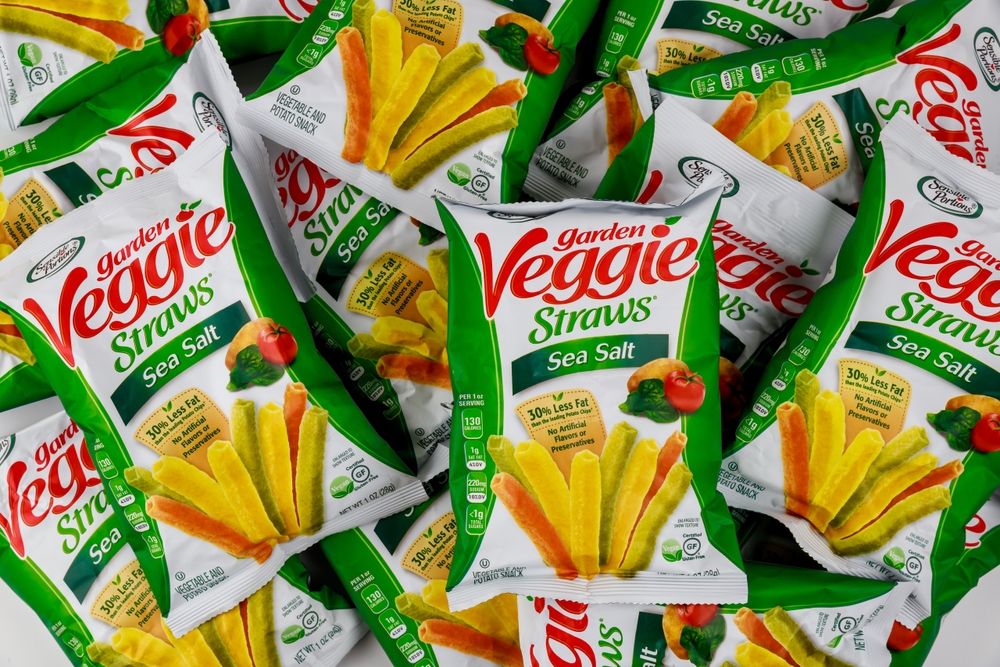
Veggie Straws are a snack made from a combination of potato starch and flour, vegetable oil, vegetable powders (such as spinach powder, beetroot powder, and tomato paste), and seasonings. These snacks are shaped like straws or sticks, with their colors corresponding to the different vegetables used in their production.
Veggie Straws come in a variety of flavors, including:
- Sea Salt
- Zesty Ranch
- Screamin' Hot
- BBQ
- Cheddar Cheese
- Sour Cream & Onion
- Cinnamon Apple
Nutritional Content
Per 1 oz (about 38 straws) serving:
- Calories: 130
- Fat: 7 g (Saturated Fat: 1 g)
- Sodium: 220 mg
- Carbohydrates: 17 g (Fiber: 0 g, Sugar: <1 g)
- Protein: <1 g
The primary ingredients in Veggie Straws are potato starch, potato flour, and vegetable oil, which closely resemble the ingredients found in traditional potato chips (potatoes, vegetable oil, and salt). However, Veggie Straws also include additional components like spinach powder, tomato paste, and cane sugar.
Although Veggie Straws are often marketed as a healthier alternative to traditional potato chips—mainly due to their lower calorie and fat content per serving—it's important to note that many varieties contain more sodium per serving than Lay's Classic Potato Chips. Additionally, Veggie Straws typically have less fiber than traditional potato chips.
Health Benefits
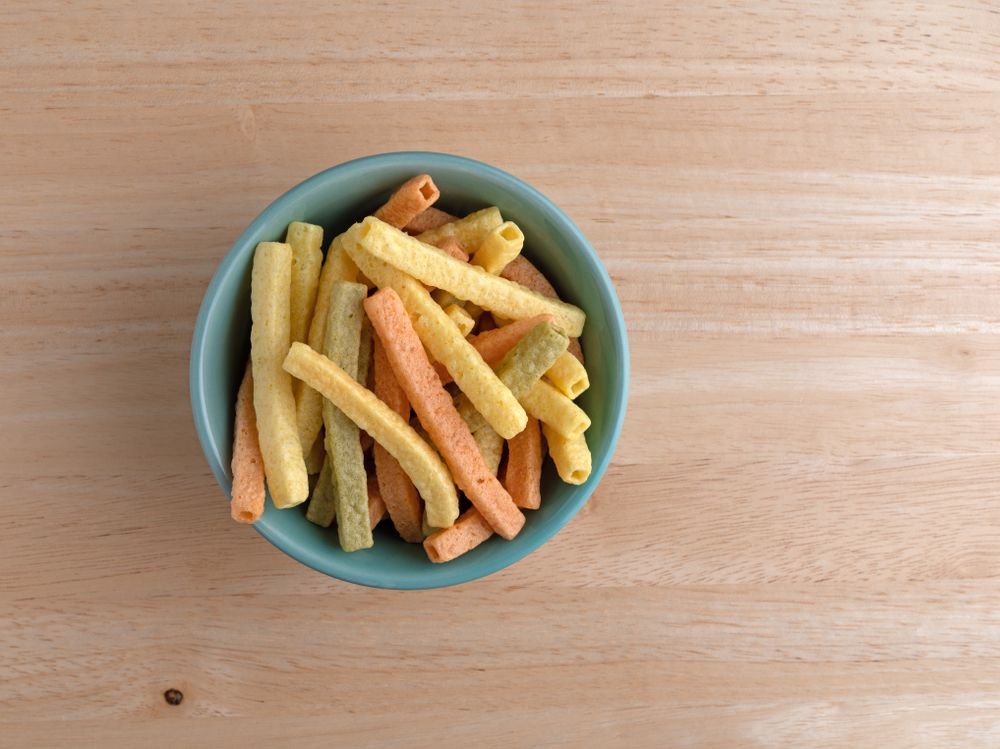
Gluten-Free
One of the key benefits of Veggie Straws is that they are gluten-free, making them a suitable snack option for individuals with celiac disease or gluten sensitivities. This allows more people to enjoy a crunchy, savory snack without the concerns associated with gluten-related adverse reactions.
Lower Fat Content Than Traditional Potato Chips
Veggie Straws contain about 30% less fat than traditional potato chips, which can be advantageous for those looking to reduce their fat intake. Additionally, of the 7 grams of fat in each one-ounce serving, only 1 gram is saturated fat. This makes them a more heart-friendly option, as consuming too much saturated fat can raise LDL (bad) cholesterol levels and increase the risk of heart disease. The American Heart Association recommends limiting saturated fat intake to no more than 13 grams per day.
No Artificial Flavors or Preservatives
Veggie Straws are made without artificial flavors or preservatives, which appeals to those who prefer to avoid these additives in their diet.
Health Drawbacks
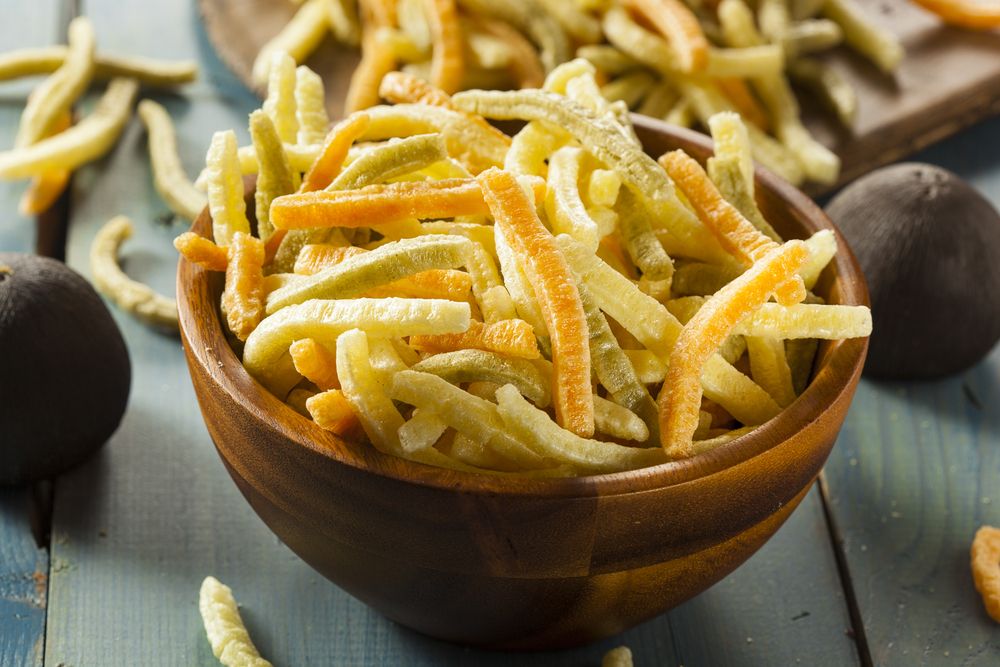
Higher in Sodium Than Traditional Potato Chips
Veggie Straws often contain more sodium than traditional potato chips. For instance, a one-ounce serving of Sea Salt Veggie Straws has 220 milligrams of sodium, while Sour Cream & Onion Veggie Straws pack 370 milligrams of sodium per one-ounce serving. In comparison, Lay's Classic Potato Chips contain 210 milligrams of sodium per one-ounce serving. It's important to note that the Dietary Guidelines for Americans recommend limiting sodium intake to no more than 2,300 milligrams daily. A serving of Sour Cream & Onion Veggie Straws, for example, provides 16% of the daily recommended limit.
Why is excessive sodium a concern? Sodium attracts water, and consuming too much can pull water into the bloodstream, increasing blood pressure, a condition known as hypertension. This heightened pressure forces the heart to work harder, potentially damaging arteries and organs. Over time, this can elevate the risk of heart attack, stroke, and kidney disease.
Low in Fiber
Veggie Straws contain no fiber, while traditional potato chips offer about 2 grams of fiber per one-ounce serving. Although 2 grams may seem small, fiber contributes to a feeling of fullness. Traditional potato chips, with their higher fiber content, may help you feel satisfied for longer than an equivalent serving of Veggie Straws.
Low in Protein
Veggie Straws are also low in protein, another nutrient that promotes satiety. With minimal protein content, a serving of Veggie Straws on their own is unlikely to keep you feeling full for long.
Easy to Overeat
Like traditional potato chips, Veggie Straws are high in salt and fat, making them highly palatable. These factors can override your body's natural fullness signals, leading to overeating. Given their hyper-palatable nature and low levels of satiating nutrients like fiber and protein, Veggie Straws are a snack that is easy to over-consume, which may contribute to weight gain over time.
Are Veggie Straws Healthy?
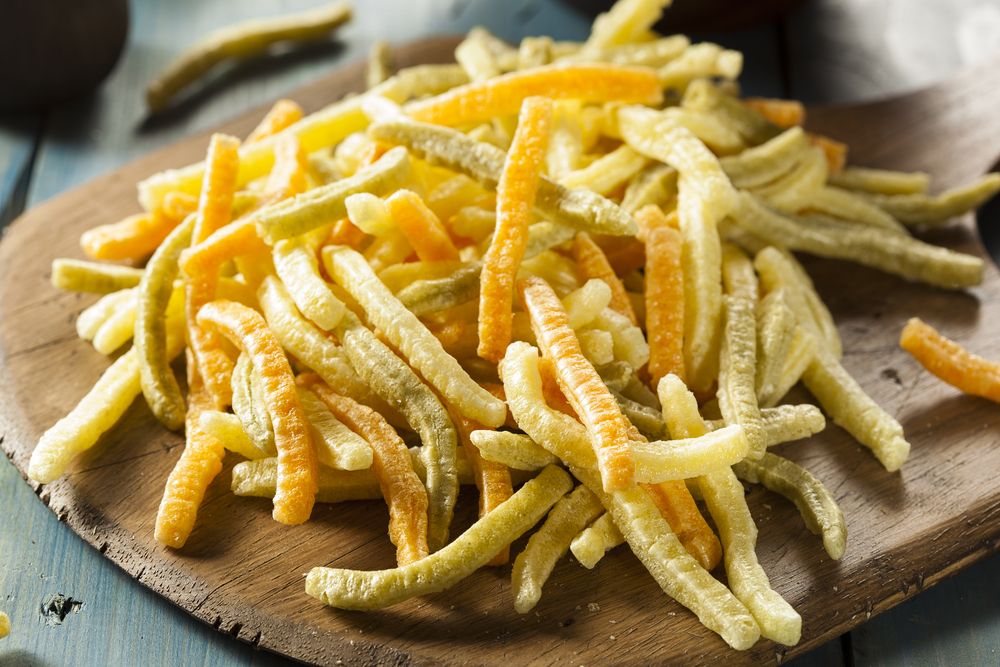
Overall, while Veggie Straws might seem like an appealing option for those seeking healthier snacks, their disadvantages outweigh their potential benefits. Nutritionally, they are almost identical to traditional potato chips, offering little more than high sodium content and low levels of protein and fiber. This combination makes them hyper-palatable and easy to overconsume.
For a more balanced and satisfying snack, consider pairing Veggie Straws with a nutrient-dense dip like hummus, which can add protein and fiber to help keep you fuller for longer. However, it's best not to rely on Veggie Straws as a regular snack, as they offer minimal nutritional value. Instead, opt for alternatives like whole-grain crackers, raw vegetables, air-popped popcorn, or healthier chips such as protein chips or lentil chips.

